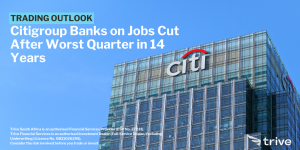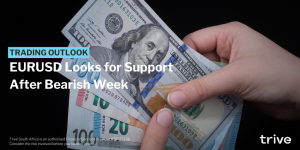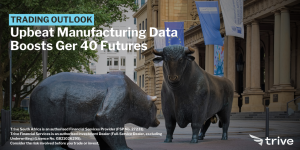
Shoprite Holdings Limited (JSE: SHP), South Africa’s leading supermarket group, has recently announced impressive financial results, solidifying its position as an industry leader. Despite a modest year-to-date dip of 6% in share price, Shoprite has sustained an impressive four-year streak of share price growth, reflecting its resilience and strategic positioning in the market. The company’s revenue surged by an impressive 13.9% to reach R121.1 billion, translating its top-line growth into a substantial 7.6% increase in diluted headline earnings per share to R6.21.
One significant factor contributing to Shoprite’s achievements is the substantial growth in sales across its three primary retail brands – Shoprite, Checkers, and Usave. This growth reflects robust consumer demand and the successful implementation of operational strategies. Furthermore, Shoprite has witnessed a significant uptick in market share, driven by a remarkable 14.6% increase in sales from core business segments, amounting to an additional R12.4 billion in customer spend compared to the same period last year. Moreover, shareholders stand to benefit from an increased interim dividend per share, up by 7.7% to R2.67.
However, amidst its remarkable performance, Shoprite faces challenges, notably the escalating costs of running diesel generators during periods of load shedding. Despite these challenges, Shoprite’s robust financial performance underscores its resilience and strategic prowess in navigating market dynamics.
Technical
Shoprite’s stock has been on an upward trajectory, supported by an ascending channel pattern and trading above its 100-day moving average, indicating a bullish trend. However, a recent shift in sentiment has favoured the downside, leading to a downturn in the share price, which has now converged with the moving average.
Selling pressures emerged at the R276.68 per share level, coinciding with the upper boundary of the ascending channel, as overbought RSI conditions prevailed. Consequently, the share price declined and revisited the lower boundary of the channel. Nonetheless, a rejection of the lower boundary saw an uptick in the share price from the R251.68 per share level, forming a support level.
Following the upbeat interim results, should buying activity reemerge, a retest of the R276.68 per share resistance level is likely, indicating restored market confidence. Conversely, if downside pressures persist, a retest of the R251.68 per share level is probable, suggesting ongoing uncertainty and potential bearish sentiment among investors.

Summary
Shoprite’s impressive financial performance underscores its market leadership despite challenges. With robust revenue growth and increased shareholder dividends, it navigates through obstacles like rising generator costs. Despite recent share price downturns, technical analysis suggests potential resistance at R276.68 and support at R251.68 levels, reflecting ongoing market sentiment.
Sources: Shoprite Holdings Ltd, MoneyWeb, Reuters, TradingView
Piece Written By Nkosilathi Dube, Trive Financial Market Analyst
Disclaimer: Trive South Africa (Pty) Ltd (hereinafter referred to as “Trive SA”), with registration number 2005/011130/07, is an authorised Financial Services Provider in terms of the Financial Advisory and Intermediary Services Act, 37 of 2002. Trive SA is authorised and regulated by the South African Financial Sector Conduct Authority (FSCA) and holds FSP number 27231. Trive Financial Services Ltd (hereinafter referred to as “Trive MU”) holds an Investment Dealer (Full-Service Dealer, excluding Underwriting) Licence with licence number GB21026295 pursuant to section 29 of the Securities Act 2005, Rule 4 of the Securities Rules 2007, and the Financial Services Rules 2008. Trive MU is authorized and regulated by the Mauritius Financial Services Commission (FSC) and holds Global Business Licence number GB21026295 under Section 72(6) of the Financial Services Act. Trive SA and Trive MU are collectively known and referred to as “Trive Africa”.
Market and economic conditions are subject to sudden change which may have a material impact on the outcome of financial instruments and may not be suitable for all investors. Trive Africa and its employees assume no liability for any loss or damage (direct, indirect, consequential, or inconsequential) that may be suffered. Please consider the risks involved before you trade or invest. All trades on the Trive Africa platform are subject to the legal terms and conditions to which you agree to be bound. Brand Logos are owned by the respective companies and not by Trive Africa. The use of a company’s brand logo does not represent an endorsement of Trive Africa by the company, nor an endorsement of the company by Trive Africa, nor does it necessarily imply any contractual relationship. Images are for illustrative purposes only and past performance is not necessarily an indication of future performance. No services are offered to stateless persons, persons under the age of 18 years, persons and/or residents of sanctioned countries or any other jurisdiction where the distribution of leveraged instruments is prohibited, and citizens of any state or country where it may be against the law of that country to trade with a South African and/or Mauritius based company and/or where the services are not made available by Trive Africa to hold an account with us. In any case, above all, it is your responsibility to avoid contravening any legislation in the country from where you are at the time.
CFDs and other margin products are complex instruments and come with a high risk of losing money rapidly due to leverage. You should consider whether you understand how these products work and whether you can afford to take the high risk of losing your money. Professional clients can lose more than they deposit. See our full Risk Disclosure and Terms of Business for further details. Some or all of the services and products are not offered to citizens or residents of certain jurisdictions where international sanctions or local regulatory requirements restrict or prohibit them.




